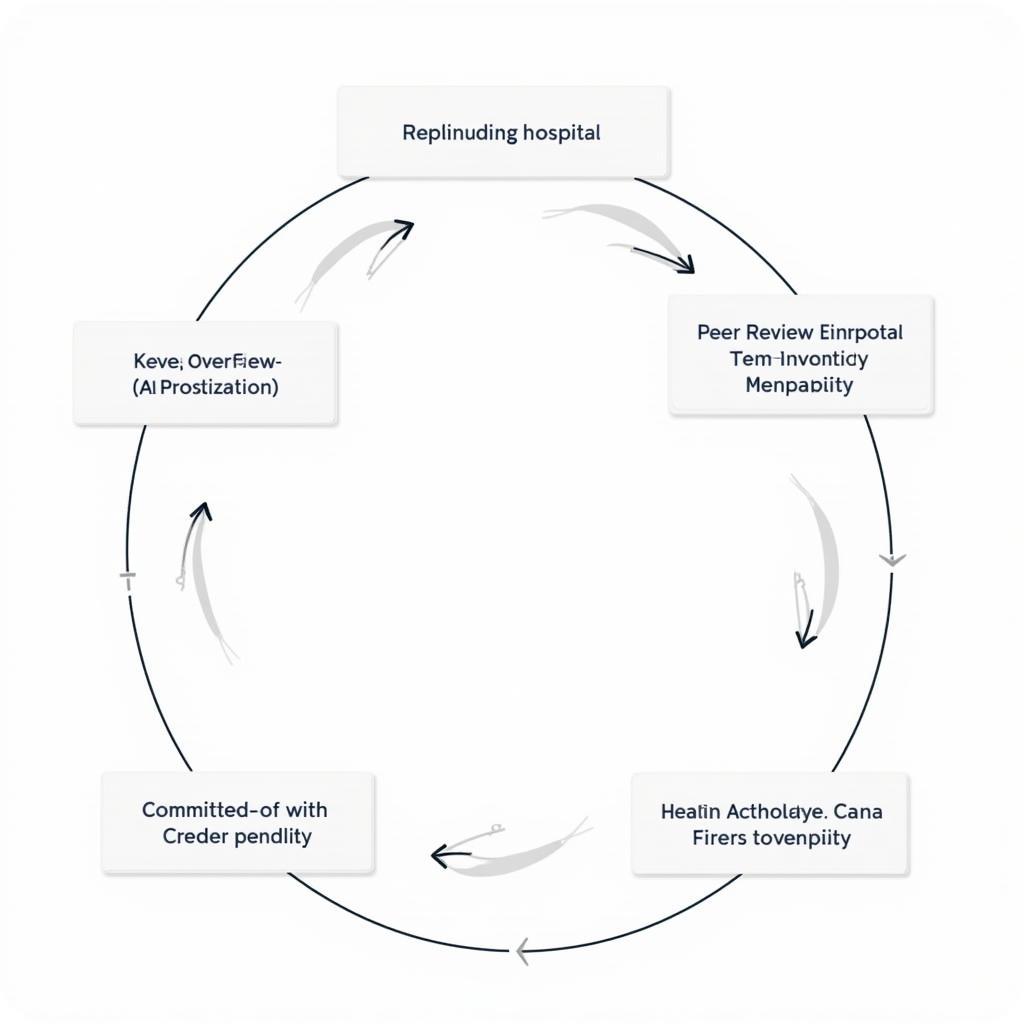Understanding the difference between hospital affiliation and hospital privileges is crucial for both healthcare professionals and patients. While the terms may sound similar, they represent distinct relationships with a hospital. This article will clarify the key distinctions between these two concepts and shed light on their significance within the healthcare system.
Hospital Affiliation vs. Hospital Privileges: Defining the Terms
Hospital affiliation refers to a formal agreement or association between a physician and a hospital or healthcare system. This affiliation doesn’t necessarily grant the physician the right to admit or treat patients at that specific hospital. It often signifies a broader connection, perhaps through a shared network, participation in insurance plans, or collaboration on research initiatives. Affiliated physicians might refer patients to the hospital, collaborate with hospital staff on patient care, or participate in educational programs.
Hospital privileges, on the other hand, are the specific authorizations granted to a physician to perform certain medical procedures and admit patients within a particular hospital. These privileges are based on a physician’s credentials, including their education, training, experience, and demonstrated competence. They are granted after a rigorous review process and are specific to the institution. A physician can have privileges at multiple hospitals but must apply and be credentialed at each one individually.
Key Differences: A Closer Look
One of the most significant differences lies in the scope of each relationship. Affiliation is a broader association, while privileges are specific to the services a physician can provide within a hospital. Think of affiliation as a professional network and privileges as a license to practice within a specific setting.
Another key difference is the application process. Hospital affiliations often involve less stringent requirements, focusing on mutual benefits and shared resources. Obtaining hospital privileges, however, requires a detailed application process involving verification of credentials, peer reviews, and evaluation of clinical competence.
 Hospital Privileges Application Process: A Detailed Overview
Hospital Privileges Application Process: A Detailed Overview
Why the Distinction Matters for Patients
Understanding the difference between affiliation and privileges is essential for patients seeking quality care. While an affiliation might indicate a physician’s connection to a hospital, it doesn’t guarantee they can treat you there. Confirming a physician’s hospital privileges ensures they have the necessary authorization to provide care at your chosen hospital. This is especially crucial for procedures requiring hospitalization or specialized care.
What does this mean for me as a patient?
Simply put, confirming a doctor’s privileges at your chosen hospital guarantees they have the appropriate authorization to treat you there.
Navigating Hospital Affiliations and Privileges
For physicians, navigating these relationships is critical for career advancement and patient care. Maintaining active affiliations and seeking privileges at reputable hospitals can enhance a physician’s professional standing and expand their patient base.
How do I find a doctor with privileges at my preferred hospital?
Most hospitals provide online directories or physician finders that allow you to search for doctors based on their specialty and hospital privileges.
The Impact on Healthcare Delivery
The interplay between hospital affiliations and privileges shapes the landscape of healthcare delivery. Strong affiliations can facilitate collaboration and resource sharing, improving the efficiency and effectiveness of patient care. Robust privileging processes ensure patient safety and maintain high standards of medical practice within hospitals.
“Hospital privileges are a cornerstone of patient safety, ensuring that qualified physicians provide care within their demonstrated areas of expertise,” states Dr. Amelia Garcia, Chief Medical Officer at San Jose Hospital.
Conclusion
The difference between hospital affiliation and hospital privileges is significant. While affiliation represents a broader association, privileges grant specific authorizations for patient care within a hospital. Understanding this distinction is vital for both patients and physicians, ensuring clear communication and informed decision-making within the healthcare system. Choosing a physician with the appropriate hospital privileges can greatly impact the quality and accessibility of care you receive.
FAQ
- Can a physician have privileges at multiple hospitals? Yes.
- Does hospital affiliation guarantee admitting privileges? No.
- How can I verify a physician’s hospital privileges? Contact the hospital directly or use their online physician finder.
- What criteria are used to grant hospital privileges? Education, training, experience, and demonstrated competence.
- Why are hospital privileges important for patient safety? They ensure qualified physicians provide care within their expertise.
- Do all physicians need hospital privileges? Not all physicians require hospital privileges, particularly those who primarily practice in outpatient settings.
- How often are hospital privileges reviewed? Regularly, often every two years.
Common Scenarios
- Scenario 1: A patient needs a specific surgery. They should confirm their surgeon has privileges to perform that procedure at their chosen hospital.
- Scenario 2: A physician wants to expand their practice. Seeking privileges at additional hospitals can broaden their patient base.
Further Reading
For more information on women’s health services, visit our ob gyn riverside hospital page.
Need support? Contact us 24/7 at Phone: 02437655121, Email: [email protected], or visit us at 298 Cau Dien St., Minh Khai, Bac Tu Liem, Hanoi, Vietnam.